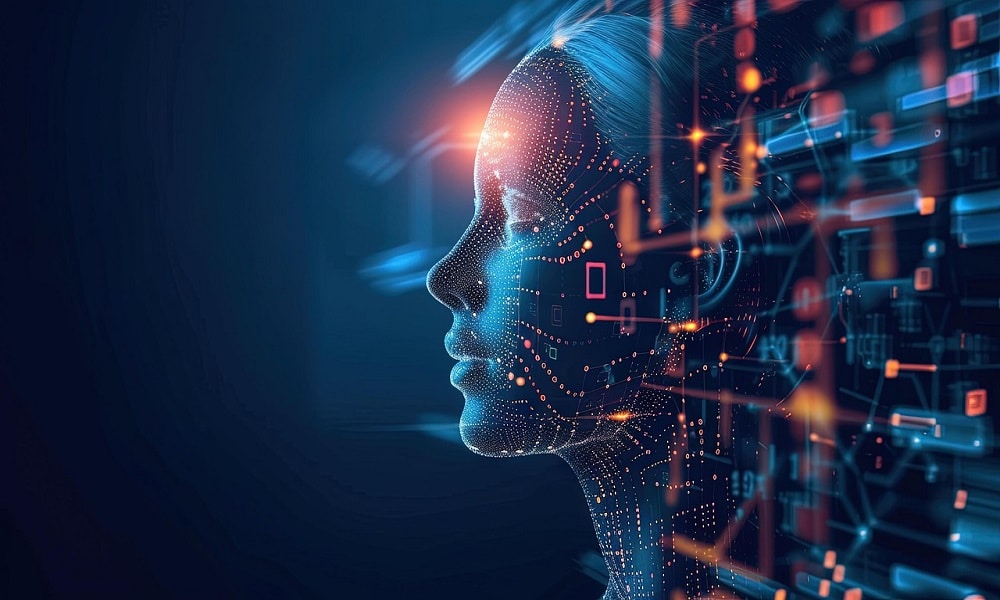In the vast digital landscape where websites compete for attention, Search Engine Optimization (SEO) stands as the beacon guiding users to relevant content. Over the years, SEO has evolved from a keyword-centric approach to a more sophisticated, user-centric strategy, thanks in large part to advancements in artificial intelligence (AI) and technology. In this article, I’ll delve into the symbiotic relationship between AI and SEO, exploring how AI is revolutionizing the way websites are optimized to enhance visibility and user experience.
Understanding AI in SEO:
AI in SEO refers to the use of artificial intelligence technologies and algorithms to optimize websites for search engines. Traditional SEO techniques often relied on manual keyword research, content creation, and link building. However, with the advent of AI, SEO professionals now have access to powerful tools that can analyze vast amounts of data, predict user behavior, and adapt strategies in real-time.
#1. Content Optimization:
Content lies at the heart of SEO, and AI has significantly impacted how content is created, optimized, and ranked by search engines. AI-powered tools can analyze user intent, identify relevant topics, and suggest keywords to improve search visibility. Natural Language Processing (NLP) algorithms enable machines to understand and interpret human language, allowing content creators to produce more engaging and informative articles that resonate with their target audience.
#2. Personalized Search:
AI algorithms power personalized search experiences, where search results are tailored to individual user preferences, behavior, and demographics. By analyzing user data such as search history, location, and past interactions, search engines can deliver more relevant and personalized results. For businesses, this means understanding their audience’s preferences and optimizing their content accordingly to increase visibility among their target demographics.
#3. Voice Search Optimization:
The rise of voice-activated virtual assistants like Siri, Alexa, and Google Assistant has led to the proliferation of voice search queries. AI plays a crucial role in voice search optimization by understanding natural language queries and providing concise, accurate answers. Optimizing content for voice search requires a conversational tone, concise answers to common questions, and the use of long-tail keywords that reflect how people speak.
The Role of AI Technologies in SEO:
AI technologies encompass a wide range of tools and techniques that empower SEO professionals to optimize websites more effectively. Let’s explore some key AI technologies reshaping the SEO landscape:
#1. Machine Learning:
Machine Learning (ML) algorithms analyze vast amounts of data to identify patterns, trends, and correlations that traditional algorithms may overlook. In SEO, ML algorithms can predict search engine algorithm updates, analyze backlink profiles, and identify potential ranking factors. By continuously learning from new data, ML algorithms can adapt SEO strategies to changing trends and preferences.
#2. Natural Language Processing (NLP):
NLP enables machines to understand, interpret, and generate human language in a way that mimics human comprehension. In SEO, NLP algorithms can analyze the context and semantics of content to determine its relevance to search queries. This allows SEO professionals to create content that aligns with user intent and improves search visibility.
#3. Image Recognition:
With the growing importance of visual content, image recognition technology has become essential for SEO. AI-powered image recognition algorithms can analyze images on web pages, identify objects, and extract relevant metadata for search engines to index. By optimizing image alt text, file names, and captions, websites can improve their visibility in image search results.
#4. Predictive Analytics:
Predictive analytics leverages AI algorithms to forecast future trends, behaviors, and outcomes based on historical data. In SEO, predictive analytics can help identify emerging keywords, anticipate changes in search engine algorithms, and predict fluctuations in search traffic. By anticipating these trends, businesses can proactively adjust their SEO strategies to stay ahead of the competition.
The Future of AI-Driven SEO:
As AI continues to evolve, the future of SEO will be characterized by even greater automation, personalization, and predictive capabilities. Here are some trends shaping the future of AI-driven SEO:
1. AI-Powered Chatbots:
Chatbots powered by AI and natural language processing are becoming increasingly prevalent in customer service and support. In the realm of SEO, chatbots can assist users with search queries, provide personalized recommendations, and gather valuable insights into user behavior. Integrating chatbots into websites can enhance the user experience and drive engagement, ultimately improving search rankings.
2. Semantic Search:
Semantic search aims to understand the context and intent behind search queries rather than relying solely on keywords. AI technologies such as NLP and semantic analysis enable search engines to interpret the meaning of words and phrases, delivering more relevant and accurate search results. SEO professionals will need to optimize content for semantic search by focusing on topical relevance, entity recognition, and structured data markup.
3. AI-Generated Content:
AI-generated content, powered by natural language generation algorithms, has the potential to transform content creation in SEO. While human creativity and expertise remain invaluable, AI can assist with generating data-driven insights, automating repetitive tasks, and personalizing content at scale. However, ethical considerations surrounding AI-generated content, such as plagiarism and authenticity, must be carefully addressed.
4. Enhanced User Experience:
AI-driven technologies such as personalization engines, recommendation systems, and predictive analytics will play a pivotal role in enhancing the user experience and engagement. By understanding user preferences and behavior, websites can deliver personalized content, streamline navigation, and optimize conversion paths. A seamless user experience not only improves search rankings but also fosters customer loyalty and retention.
Conclusion:
The integration of AI and technology into SEO represents a paradigm shift in how websites are optimized for search engines. From content optimization and personalized search to voice search and predictive analytics, AI-driven technologies are revolutionizing the way businesses approach SEO. As we navigate the ever-changing landscape of digital marketing, embracing AI-powered tools and techniques will be essential for staying competitive and maximizing online visibility. By leveraging the power of AI, businesses can not only improve their search rankings but also deliver more personalized, relevant, and engaging experiences to their audience.


